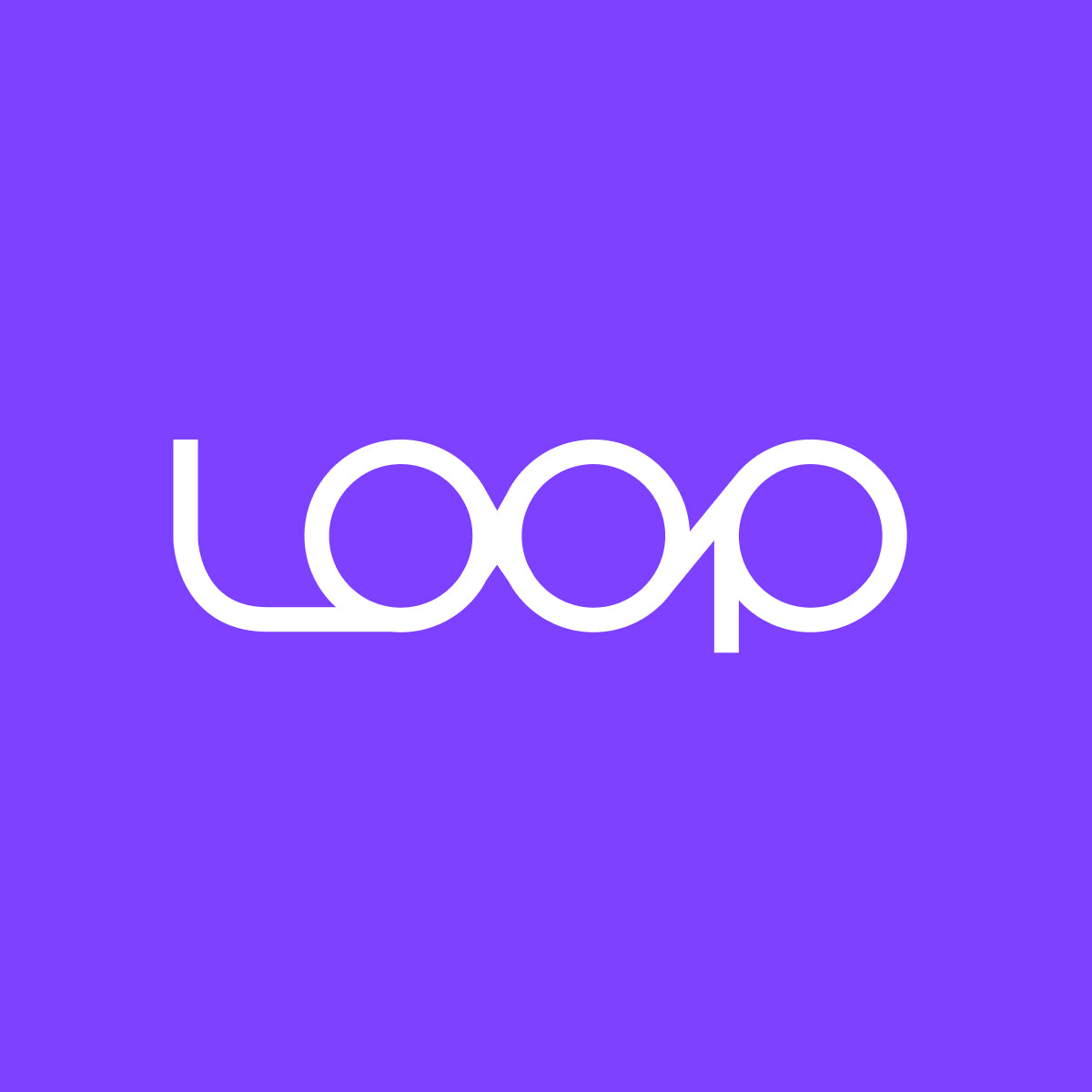- Home
- Product bundle
Best Product Bundle Apps
What is Product Bundle software?
Appjunction currently boasts 32 tools within the Product Bundle category as of March 2025. Among these, some standout options renowned for their robust features and excellent value for money includes includes Loop Subscriptions ,
Addly Bundles , and Zoorix . These software solutions offer comprehensive functionalities tailored to meet various Product Bundle needs, making them top choices for businesses seeking efficient and effective marketing solutions.
Product bundle software is a tool designed to help businesses package and sell multiple products or services together as a single offering. This software simplifies the process of creating and managing product bundles, allowing companies to easily customize offerings to meet the needs of their customers. With product bundle software, businesses can efficiently combine complementary items or services, offering customers added value and convenience.
The software typically includes features such as customizable bundle configurations, pricing options, and inventory management. This enables businesses to experiment with different bundle combinations and pricing strategies to optimize sales and maximize revenue. Additionally, product bundle software often integrates with e-commerce platforms, streamlining the sales process and providing a seamless shopping experience for customers.
Overall, product bundle software offers businesses a strategic advantage by enabling them to increase sales, improve customer satisfaction, and simplify the management of bundled offerings. By leveraging this software, companies can effectively capitalize on the benefits of bundling products or services together, driving growth and profitability.
10 Listings in Product Bundle Available

Loop Subscriptions
0
(272)
Loop Subscriptions is an app that drives subscription revenue through a comprehensive customer portal, bundle builder, flows, and box subscriptions, enhancing customer engagement and recurring revenue.

Addly Bundles
0
(141)
Addly enhances margins by generating hundreds of pre-purchase AI upsells, discounted bundles, and cross-sells, tailored to maximize revenue and customer satisfaction through strategic product placement and offers.

Zoorix
0
(659)
Zoorix enhances online stores with upsell bundles to boost average order value, featuring tiered discounts, pricing, cart upsell, and mix-and-match options to maximize revenue and customer satisfaction.

Awtomic
0
(44)
Awtomic enables easy selling of subscriptions, bundles, build-a-box, and add-ons, aiming to increase average order value, retention, and revenue through diversified product offerings and subscription models.

Recharge
0
(1,697)
Recharge Subscriptions aids brands in maximizing their shopper's value through a comprehensive subscription management system, encouraging recurring revenue.

UFE
0
(994)
Maximize your sales potential with targeted upsell, cross-sell, product recommendations, and bundle offers, creating a personalized shopping experience that encourages additional purchases.

Fast Bundle
0
(472)
Fast Bundle facilitates the creation of compelling product bundles, enabling you to upsell combinations of products as bundled offers. This tool is designed to make bundled offers irresistible, thereby increasing average order value and enhancing the customer purchasing journey.

Rebolt
0
(904)
Rebolt simplifies the process of creating customizable bundles, BOGO offers, volume discounts, and mix-and-match options. It's tailored to be the most straightforward solution for building versatile bundling strategies that cater to customer preferences and boost sales.

Assortion
0
(399)
Assortion is an application designed to increase your store's average order value (AOV) by offering customers frequently bought together suggestions, volume discounts, upsell opportunities, and post-purchase offers.

PickyStory
0
(689)
PickyStory is a robust platform for creating bundle and upsell opportunities across the entire purchase journey, from pre to post-purchase, aimed at significantly boosting store revenue through strategic product combinations and offers.
Overall Rating
4.9Ratings Breakdown
5
(265)
4
(4)
3
(0)
2
(0)
1
(3)
User Reviews
Shop For Your Charity
July 3, 2024
This app was a bit glitchy at first, but Omnisend's team was great about getting things fixed for me. So far, so good - I'm going to keep using it and see what they come up with next. My main feedback would be they really need to step up their email template game! They call themselves the marketing automation tool for omnichannel retailers, and retail is al
Summer Indigo
July 3, 2024
I am beyond furious! I painstakingly added all my contacts to this app a few years ago when I first connected it to my Shopify store. It was a ton of work! I haven't used it much since then because my business was mostly in-person, but I could still log in and poke around just recently. Imagine my shock when I tried to log in yesterday to set up a campaign,
2020shopdirect.com
July 3, 2024
Okay, so I really like this app! It's great. But, there's something that's been bugging me. It's a big deal, at least for us. It's about how you subscribe and unsubscribe people. We always use double opt-in, which you totally should, but the problem is you can't really customize the emails and landing pages. You can change the words, but that's it. No logo,
RunSociety
July 3, 2024
It's a breeze to use, but I wish the WYSIWYG editor had some cooler features and more customization options. It feels a bit limited.
unisonmen.de
July 3, 2024
Please provide me with the review text you want me to rephrase. I need the actual content of the review to help you! 😊
TopCPAPCleaner
July 3, 2024
This app was great, but it's gotten so pricey I might have to jump ship. My wallet can't keep up! Thinking about switching to something cheaper.
JacnoBijoux
June 2, 2024
Bon, j'ai essayé d'envoyer un mail test après avoir tout configuré en français. Le mail est arrivé dans les spams, et en plus, il était à moitié en anglais ! C'est vraiment dommage parce que l'appli est super facile à utiliser.
Retro Chip
June 2, 2024
It would be awesome if the app could pull in user names when sending emails. Also, can you add the ability to choose between different email addresses? I have several for my business. Thanks a bunch!
Akiba Fragrance & Wellness Studio
June 2, 2024
New to Omnisend, but gotta say, their customer support is really on point! Big shoutout to Baraath for being super helpful and quick to answer my questions about formatting and testing an email campaign.
esrajeans
June 2, 2024
Man, der Support von Omnisend geht mir so auf die Nerven! Ewig lange Wartezeiten, bis endlich mal jemand antwortet, und dann kommt da so ein Wischi-Waschi zurück, mit dem ich echt nichts anfangen kann. Bei den Preisen, die Omnisend aufruft, könnte man echt mehr erwarten. Total unzufrieden - kann ich im Moment echt nicht weiterempfehlen!
Similar Categories
More about Product Bundle Tools
Benefits of using Product Bundle Software
Product bundle apps offer several advantages for ecommerce or Shopify brands. For starters, they can boost your sales because customers often end up buying more stuff when it's bundled together. This means they spend more each time they shop with you.
Bundling is also a smart way to get rid of items that aren't selling too well. Just pair them with some of your hot sellers, and they're more likely to fly off the shelves. Plus, these apps make shopping easier for your customers. They get to pick from neat bundle deals, which saves them the hassle of choosing each item separately.
These apps are also great for playing around with different bundle deals and prices to see what works best. They give you a peek into what your customers like and how they shop, so you can make sure your deals hit the mark. And who doesn't love a deal that feels like it was made just for them? That's another way bundle apps keep your customers happy.
From a logistical standpoint, bundle apps streamline inventory management and order fulfillment, reducing complexity and improving operational efficiency. Lastly, integrating bundle apps with ecommerce platforms like Shopify facilitates seamless transactions and enhances the overall shopping experience for customers. Overall, product bundle apps provide ecommerce and Shopify brands with a powerful tool to drive sales, increase revenue, and enhance customer satisfaction.
To better understand the benefits of using Product Bundle Apps, you may also read the general reviews provided by users of these platforms on Appjunction. Additionally, you can join communities and interact with peers using these tools. Furthermore, you may review the case studies provided by the aforementioned tools.
Typical Pricing of Product Bundle Apps
The cost of a product bundle tool for Shopify or ecommerce brands can vary depending on several factors such as the features offered, the complexity of the tool, and the provider. Generally, pricing models for these tools can range from monthly subscription fees to transaction-based fees or a combination of both.
Basic product bundle tools may start at around $10 to $20 per month for smaller businesses with limited needs. As the features and functionality become more advanced, the cost can increase to $50 to $100 per month or more for premium packages.
Some providers offer tiered pricing plans based on the size of the business or the volume of sales. Additionally, there may be additional fees for customization, support, or integration with other platforms.
For enterprise-level solutions or custom-built bundle tools, the cost can be significantly higher and may involve negotiating pricing with the provider based on specific requirements.
Overall, businesses should consider their budget, requirements, and expected return on investment when evaluating the cost of a product bundle tool for their Shopify or ecommerce brand.
Overall, the cost of Product Bundle tools would vary depending on your usage and the size of your brand. However, there are a lot of tools you may find on Appjunction that offer free trials to give you an idea of the features they offer. I'd highly suggest trying a few and selecting the ones that work for you. You can also sort them by pricing and use them according to your needs.
Product Bundle Software Features to look
When choosing a product bundle platform for an ecommerce brand, several key features should be considered to ensure it meets the needs of the business and its customers:
Customizable Bundle Configurations: The platform should allow for easy creation and customization of product bundles, including the ability to mix and match items, set bundle pricing, and adjust configurations as needed.
Dynamic Pricing: Look for a platform that offers dynamic pricing capabilities, allowing for flexible pricing strategies such as percentage discounts, fixed discounts, or tiered pricing based on the contents of the bundle.
Inventory Management: The platform should integrate seamlessly with inventory management systems to ensure accurate tracking of bundled items and prevent overselling or stockouts.
Integration with Ecommerce Platforms: Choose a platform that integrates smoothly with your existing ecommerce platform, such as Shopify, WooCommerce, or Magento, to streamline operations and provide a seamless shopping experience for customers.
Analytics and Reporting: Look for robust analytics and reporting features that provide insights into bundle performance, customer behavior, and sales trends, enabling data-driven decision-making and optimization of bundle offerings.
Customer Experience Features: Think about your shoppers. You want them to have a good time picking and choosing their bundles without any confusion. Clear prices and a smooth experience on your site will keep them coming back for more.
So, keep these tips in your back pocket when you're picking out a platform for your product bundles, and you'll be all set!
To get a better overview of the various features offered by different tools, I would highly recommend browsing the feature section of each app and comparing them with others in the same industry. This will give you a better idea of the different features offered by apps in Product Bundle.
Who uses Product Bundle Software?
Product bundle software is used by various stakeholders within an ecommerce brand, including:
Merchandisers: These are the people who pick out which products go well together and make those cool bundles you see online. They're all about giving customers what they want and making sure those bundles look tempting. They use the software to mix and match products without breaking a sweat.
Marketing Teams: Marketing teams leverage product bundle software to promote bundled offerings through various channels such as email marketing, social media, and digital advertising. They may also analyze customer data to identify opportunities for targeted promotions and campaigns.
Sales Teams: Sales teams use bundle software to upsell and cross-sell bundled products to customers, maximizing sales opportunities and revenue generation. They may also utilize bundle analytics to track performance and optimize sales strategies.
Inventory Managers: Inventory managers rely on bundle software to track bundled product inventory levels, manage stock levels, and prevent stockouts or overstock situations. Integration with inventory management systems helps ensure accurate inventory tracking and replenishment.
Ecommerce Managers: These generally get their hands full overseeing the whole online store. They're all about making sure customers are happy, sales are up, and the business is booming. They rely on the software to see how bundles are doing and use that info to make smart moves for the shop.
Product Bundle software has been used by various teams across the organization. I would highly recommend you to go through reviews along with the designation of the reviewer to get a fair idea of the different teams that use these software. You can also dig deeper into each review and find out the use cases and problems they have faced.
Different kinds of Product Bundle Software
There are several types of product bundle software available for ecommerce or Direct-to-Consumer (DTC) brands, each offering unique features and functionalities to meet different business needs:
Specialized Bundle Apps: You've got these specialized apps that are all about bundles. They're like the Swiss Army knives for creating deals that group products together. You can play around with pricing, mix and match items in the bundles, and check out the stats to see how they're doing.
Inventory Management Systems with Bundle Functionality: Then, there are inventory systems that have a little extra something – they can handle bundles too. These are great for keeping an eye on how many bundles you've got ready to go and how they're selling, plus they make sure all your sales channels know what's available..
Sales and Marketing Automation Platforms: You've also got these fancy sales and marketing tools that can do a bit of everything, including bundles. They're pretty handy for setting up special bundle deals, making the whole selling process smoother, and understanding your customers better to make sure your bundles hit the mark.
Custom-Built Solutions: Larger ecommerce brands or enterprises may opt to develop custom-built product bundle software tailored to their specific requirements. These solutions offer maximum flexibility and scalability but typically require significant investment in development time and resources.
I would highly recommend that you go through the subcategories within each category on Appjunction to learn more about the different types of tools offered in Product Bundle. Select a subcategory for which you're searching for a tool and explore its features and pricing. You can also filter the reviews based on company size and industry to see how this tool works for businesses like yours.
Potential issues with Product Bundle Software
While product bundle apps offer numerous benefits, there are several potential issues that ecommerce or Shopify brands may encounter when using them:
Complexity: Creating and managing product bundles can be complex, especially if the app lacks intuitive user interface or requires extensive configuration. This complexity may lead to errors in bundle setups, pricing discrepancies, or inventory management issues.
Integration Challenges: Some product bundle apps may not integrate seamlessly with existing ecommerce platforms or other third-party applications, leading to compatibility issues, data synchronization problems, or disruptions in operations.
Performance Issues: Another bummer is when these apps make your website drag. If your site starts to crawl, customers get annoyed, might ditch their shopping carts, and that's not good for business.
Limited Customization: Also, some apps don't let you tweak things much. That can be a pain when you want your bundles to feel special or really fit what your brand's all about.
Pricing Complexity: Dynamic pricing features in product bundle apps can make pricing structures more complex, leading to confusion for both businesses and customers. Additionally, pricing rules may not always function as intended, resulting in pricing errors or inconsistencies.
Inventory Management Challenges: Managing inventory for bundled products can be challenging, particularly if the app does not sync inventory levels accurately or fails to account for bundled items sold individually.
Customer Confusion: If your bundles are complicated or the prices aren't clear, customers might get puzzled. That can lead to them bailing before they buy, which is the last thing you want. So, keeping things clear and straightforward is key.
Getting onboarded with a new Product Bundle tool is a significant decision that you, as a manager, have to make. Do check out detailed reviews and, most importantly, their pros and cons because they'll give you a fair idea of potential challenges that you may face with these tools. I would also suggest that you filter out the negative reviews along with your industry to get a better idea of the whole picture.
Integration of Product Bundle Software
Product bundle software designed for ecommerce typically integrates with a range of tools and platforms to streamline operations, enhance functionality, and provide a seamless experience for both businesses and customers. Some common integrations include:
Ecommerce Platforms: Product bundle software often integrates directly with popular ecommerce platforms such as Shopify, WooCommerce, Magento, BigCommerce, and others. This integration ensures smooth synchronization of product data, inventory levels, pricing, and orders between the bundle software and the ecommerce platform.
Inventory Management Systems: Integration with inventory management systems like TradeGecko, Stitch Labs, or DEAR Inventory allows businesses to manage bundled product inventory levels, track stock movements, and prevent stockouts or overstock situations.
Shipping and Fulfillment Solutions: Shipping is another headache, but it doesn't have to be. The software can work with shipping solutions to take some of the pain away. It helps you get those shipping labels sorted out fast and lets your customers know where their goodies are with tracking updates.
Customer Relationship Management (CRM) Systems: And you know how important your customers are, right? That's why the software can also buddy up with CRM systems. Whether you're using HubSpot or Salesforce, it helps you keep track of your customers, remember their preferences, and even tailor your marketing just for them.
Product Information Management (PIM) Systems: Integration with PIM systems like Akeneo or Pimcore helps businesses centrally manage product information, attributes, and assets, ensuring consistency and accuracy across bundled offerings.
Appjunction can help you with a detailed list of tools integrated with each tool or app. Go to the app page, and you'll be able to find out those in detail. Additionally, you may compare different tools with respect to integrations offered by tools and what's suitable for your ecommerce brand.
Trends in Product Bundle Software
Several trends are shaping the landscape of product bundle tools in ecommerce:
Personalization: Increasingly, ecommerce brands are leveraging data analytics and customer insights to create personalized product bundles tailored to individual preferences and purchasing behaviors. This trend reflects a shift towards more targeted and relevant offerings, enhancing customer satisfaction and driving sales.
Subscription Bundles: Subscription-based models are gaining popularity in ecommerce, with brands offering recurring product bundles delivered at regular intervals. This trend not only fosters customer loyalty but also provides businesses with a predictable revenue stream and opportunities for upselling and cross-selling.
Dynamic Pricing Strategies: Ecommerce brands are increasingly adopting dynamic pricing strategies for product bundles, adjusting prices in real-time based on factors such as demand, inventory levels, competitor pricing, and customer segmentation. This trend enables businesses to maximize revenue and stay competitive in a dynamic market environment.
Omni-channel Integration: With the rise of omnichannel retailing, product bundle tools are being integrated across multiple sales channels, including ecommerce websites, mobile apps, social media platforms, and brick-and-mortar stores. This trend provides customers with a consistent shopping experience across different touchpoints and enhances brand visibility and engagement.
Curated Bundles and Collaborations: Collaborations are also a big deal. Imagine your favorite YouTuber teaming up with a cool brand to create a special pack of stuff. It's like getting a piece of that influencer's world, and it's a smart move for brands looking to get in with different crowds.
Last but not least, shopping's becoming a whole experience. Some stores are adding fun quizzes or virtual try-ons to make finding the perfect bundle more like a game. It's a blast and makes us way more likely to hit that "buy" button.
Interactive Bundle Experiences: To engage customers more effectively, some ecommerce brands are offering interactive bundle experiences, such as virtual try-on tools, product configurators, or quiz-based recommendations. These interactive features help customers explore bundled offerings in a more immersive and engaging way, leading to higher conversion rates and customer satisfaction.
Frequently Asked Questions Related To Product Bundle
What exactly is product bundle software, and how does it benefit businesses?
Product bundle software helps businesses create and manage packages of multiple products or services. It simplifies the bundling process, allowing for customization, pricing options, and inventory management. This leads to increased sales, customer satisfaction, and easier management of bundled offerings.
What are the key advantages of using product bundle apps for ecommerce brands?
Product bundle apps can significantly boost sales by encouraging customers to buy more. They also help clear out slow-moving inventory, simplify the shopping experience, allow for experimentation with pricing and bundles, and improve inventory management and order fulfillment.
How much do product bundle tools typically cost for ecommerce businesses?
The cost varies depending on features, complexity, and provider. Basic tools start around $10-$20 per month, while premium packages can reach $50-$100 or more. Enterprise solutions or custom-built tools can be significantly more expensive. Consider your budget and needs when choosing a tool.
What essential features should I look for when choosing a product bundle platform?
Key features include customizable bundle configurations, dynamic pricing options, seamless inventory management integration, compatibility with your ecommerce platform, robust analytics and reporting, and customer-friendly features for a smooth shopping experience.
Which teams within an ecommerce company typically use product bundle software?
Various teams utilize product bundle software, including merchandisers for creating bundles, marketing teams for promotion, sales teams for upselling and cross-selling, inventory managers for tracking stock, and ecommerce managers for overall performance monitoring and strategy.
Could you explain the different types of product bundle software available for ecommerce brands?
There are specialized bundle apps, inventory management systems with bundle functionality, sales and marketing automation platforms with bundling capabilities, and custom-built solutions for larger enterprises with specific requirements.